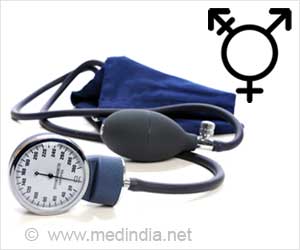The stress of discrimination in multiple ways targeting transgender and gender diverse (TGD) people, is associated with increased rates of heart disease among the TGD population.

‘TGD youth report eating more fast food and using unsafe ways of trying to manage their weight (e.g., diet pills, fasting or laxative abuse).
’





In terms of health, transgender, gender diverse and gender non-conforming people are considered "gender minorities." Expanding on the minority stress theory, statement writing group members documented how chronically high levels of stress faced by members of stigmatized, underrepresented populations associate with poor health outcomes and health disparities. They concluded that higher rates of cardiovascular prevalence and deaths among TGD people, while related to traditional cardiovascular risk factors, are also significantly driven by psychosocial stressors across the lifespan at multiple levels, including structural violence, discrimination, lack of affordable housing and access to health care. ’
"Heart health of transgender and gender diverse people is an important and understudied topic, and it's critical we highlight what we know and what we need to know about heart health among these populations," said Carl G. Streed, Jr., M.D., M.P.H., chair of the writing group for the statement, an assistant professor of internal medicine at Boston University School of Medicine and the research lead at the Center for Transgender Medicine and Surgery at Boston Medical Center. "Addressing these issues will require a focus on 'traditional' risk factors for heart attack and stroke, and a commitment to fight transphobia in order to decrease the additional stress experienced by this population."
This statement, specific to TGD persons, builds upon the Association's 2020 scientific statement, Assessing and Addressing Cardiovascular Health in Lesbian, Gay, Bisexual, Transgender and Queer (or Questioning) Adults, which noted that more than half (56%) of LGBTQ adults and 70% of those who are transgender or gender non-conforming reported experiencing some form of discrimination from a health care professional.
The new statement notes a growing body of research indicates TGD populations may be at a significantly greater risk for cardiovascular disease compared to their cisgender peers. Transgender men are twice as likely to have a heart attack than cisgender men and four times as likely than cisgender women. TGD people are also more likely to experience blood clots when undergoing estrogen hormone therapy. The writing group points out more investigation is urgently needed to explain these disparities.
Advertisement
Most gender identification options in a clinical or research setting include only "male" and "female," so while population-based studies can help in understanding some cardiovascular health risk factors, data on TGD people is scarce. The statement suggests studies should standardize measures of gender identity and expression to collect larger samples of underrepresented groups among TGD populations.
Advertisement
While the ability to document sexual orientation and gender identity has been required for electronic health records since 2018, additional steps are needed to ensure culturally responsive and supportive care. The statement details the critical need for researchers and clinicians to use gender-affirming pronouns and obtain an anatomy inventory where appropriate, noting that assumptions about a TGD person's identity or anatomy may negatively impact clinical decisions.
The writing group suggests increased training across health professions would enhance clinical practices and foster more compassionate care for TGD persons. While many institutions acknowledge the need for TGD educational content, efforts to include these topics into clinical curricula have not progressed. The statement suggests a collaborative effort with organizational-level mandates across governing bodies is needed to create a curriculum that encompasses gender affirming hormone therapy, surgical procedures, anatomy-based preventive health, social determinants of health and the proper assessment of sex and gender in health care settings.
While the statement emphasizes existing data is limited, it reviews research on disparities among TGD people as it relates to the American Heart Association's Life's Simple 7 to measure ideal heart health and how hormone therapy may affect heart health for TGD people. Current research on blood pressure, lipid profiles or blood sugar levels for TGD persons is too sparse and inconclusive, although the writing group does suggest several areas of Life's Simple 7 that are directly linked to heart attacks and strokes. The evaluation of existing research found:
TGD people are more likely (24%) to report tobacco use than the remainder of the U.S. population (18%).
Transgender men are less likely to exercise, especially in older age.
TGD persons undergoing gender-affirming hormone therapy are more physically active, which may be because they report being more satisfied with their bodies.
TGD people report overall higher body mass index (BMI), yet they may experience additional stress about their weight since many surgeons have strict BMI cut-offs above which they will not perform gender-affirming surgeries.
"Discrimination also contributes to disparities in social determinants of health among TGD populations, and many TGD persons are at even greater risk of heart disease and stroke due to transphobia and experiences of discrimination based on gender non-conformity," said Lauren B. Beach, Ph.D., J.D., vice-chair of the statement writing group and research assistant professor in the department of medical social sciences at Northwestern University's Feinberg School of Medicine in Chicago. "Systematic transphobic discrimination results in a higher burden of workplace discrimination, job loss and unemployment among TGD populations. Combined with experiences of discrimination in health care settings, lack of access to a stable income further limits health care access among TGD people. These structural factors combine to result simultaneously in higher levels of chronic stress and in lower levels of resources to prevent or manage a broad variety of health conditions including cardiovascular disease."
The writing group also cited studies showing that TGD persons experience disproportionate burdens of additional cardiovascular risk factors, including living with HIV, vascular dysfunction, trouble sleeping and alcohol abuse.
The writing group acknowledges limited data and encourages further research to understand the numerous and complex issues faced by TGD individuals and as a community. The statement emphasizes available information does illustrate that TGD people often experience challenges due to unique stressors, including internalizing gender identity, sexual victimization and concerns about hormone therapies and gender-affirming surgeries.
"Data specific to transgender and gender diverse persons lag behind what is needed to understand and improve individual and community heart health. The information available is rapidly improving, though," Streed said. "This statement summarizes the available evidence showing that addressing traditional cardiovascular risk factors and decreasing stigma-linked stress, together, would improve the heart health of TGD people. By focusing on the unique issues affecting the well-being of transgender and gender diverse persons, we have the potential to do better for everyone."
Source-Eurekalert















